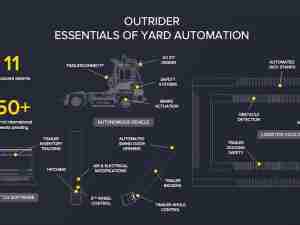Statement by Steve Williams on National Drug and Alcohol Clearinghouse for Commercial Drivers
posted by AJOT | Dec 02 2016 at 11:26 AM | Intermodal
“Today’s publication by the Federal Motor Carrier Safety Administration to create a national drug and alcohol clearinghouse marks a long awaited milestone to take drug users out of large trucks and off our nation’s highways, for the safety of all Americans,” said Steve Williams, president of the Alliance for Driver Safety & Security (aka The Trucking Alliance).
“When we formed the Trucking Alliance in 2011, two of our major objectives were to persuade Congress to mandate electronic logging devices in all commercial trucks and to create a drug and alcohol clearinghouse for truck drivers.
“Former US Senator Mark Pryor and current US Senator John Boozman, both from Arkansas, introduced those bills and they were both included in the “Moving Ahead for Progress in the 21st Century Act (MAP-21).” So, on the day when a national drug and alcohol clearinghouse is announced, I want to make a special point of thanking Mark Pryor and John Boozman for leading this effort.”
Williams also noted that thanks are due current U.S. Senators Olympia J. Snowe (R-ME), Roger Wicker (R-MS), and former US Senator David Vitter (R-LA) who were co-sponsors with Pryor and Boozman of the drug and alcohol clearinghouse legislation. “Without these five Senators working together in a bipartisan manner, we might never have a fail safe way to identify drug users and keep them out of our trucks,” said Williams. “All motorists have these current and former Senators to thank for reducing risk on our highways.”
Background
Congress directed the U.S. Department of Transportation (DOT) and the Federal Motor Carrier Safety Administration (FMCSA) to establish a national drug and alcohol clearinghouse, as mandated by the Moving Ahead for Progress in the 21st Century Act (MAP-21).
DOT and FMCSA announced today (December 2, 2016) a final rule that establishes a national drug and alcohol clearinghouse for commercial truck and bus drivers. The clearinghouse database will serve as a central repository containing records of violations of FMCSA’s drug and alcohol testing program by commercial driver’s license (CDL) holders.
The final rule requires motor carriers, medical review officers, third-party administrators, and substance abuse professionals to report information about drivers who test positive for drugs or alcohol; refuse drug and alcohol testing; and undergo the return-to-duty drug and alcohol rehabilitation process.







